
Topics
In April 2002, a team of Irish filmmakers were in Caracas, Venezuela, working on a documentary about President Hugo Chávez. They got more than they expected: They captured on film an attempted coup of the Venezuelan government and highlighted the role of the media in the coup. We play an excerpt from “The Revolution Will Not Be Televised.”
In Venezuela the media is owned by the same business forces that briefly ousted Chávez in April, and many believe it played an instrumental role in the coup. The television stations broadcast regular anti-Chávez propaganda in the days leading up to the coup, encouraging Venezuelans to head into the streets to protest. But they never once reported the massive pro-Chávez demonstrations that sprang up throughout the country. The day Chávez was restored to power, not a single paper printed news of his return.
And it has long been argued that the U.S. backed the coup. The State Department issued a press statement commending the coup within hours of Chávez’s ouster. The National Endowment for Democracy sent hundreds of thousands of dollars to anti-Chávez groups. And The New York Times printed an editorial endorsing the coup shortly thereafter. The editorial rejoiced: “Venezuelan democracy is no longer threatened by a would-be dictator … [because] the military intervened and handed power to a respected business leader.”
Transcript
AMY GOODMAN: We turn now to a second coup, or coup attempt. This took place in April of 2002 against the Venezuelan President Hugo Chávez. We’re going to play an excerpt of the film The Revolution Will Not Be Televised, produced by Kim Bartley and Donnacha Ó Briain. They’re two Irish filmmakers who were in the palace as the attempted ouster of Hugo Chávez was taking place.
DONNACHA Ó BRIAIN: At around 10 p.m., members of the military high command arrived at the palace to demand Chávez’s resignation. They would not let us enter the room. Sometime later, the first minister arrived out from the president’s office. Chávez was refusing to sign a resignation. And in response, the generals were threatening to bomb the palace.
UNIDENTIFIED: [translated] The CIA is behind this. Everyone knows it. We have proof of plans for a coup.
UNIDENTIFIED: [translated] They can’t destroy history.
DONNACHA Ó BRIAIN: By this point, most civilians had been evacuated. Those that remained knew that if the palace was bombed, there would be no way out. At about 3:30 a.m., one of the ministers came out to talk to us. Chávez had decided to hand himself over to the generals to avoid the bombing of the palace, but he was still refusing to resign as president.
MINISTER: [translated] It’s finally clear this is a coup. The president has refused to resign.
DONNACHA Ó BRIAIN: With five minutes left ’til the bombing deadline expired, Chávez was led away. One hour later, Venezuela awoke to a new regime and to an extraordinary TV moment in which all was revealed.
ANCHOR: [translated] Good morning. We have a new president.
COUP CONSPIRATOR: [translated] I must thank Venevisión and RCTV. I must say thanks to all the TV channels. Thanks to the media.
DONNACHA Ó BRIAIN: The palace we had fled only hours before was now the scene of celebrations and back slapping by the coup leaders and their cronies. As the coup generals made themselves at home in the presidential office, the palace guard in their red berets, who yesterday had served Chávez, were now reluctantly at the orders of Carmona.
NEWLY APPOINTED ATTORNEY GENERAL: [translated] We hereby decree that a democratic transitional government shall be established in the following manner: We hereby dissolve the National Assembly. We also dissolve the Supreme Court. We dismiss the attorney general, the head of the Central Bank and the ombudsman and the National Electoral Board.
PRESS SECRETARY ARI FLEISCHER: Let me share with you the administration’s thoughts about what’s taking place in Venezuela. We know that the action encouraged by the Chávez government provoked this crisis. The Chávez government suppressed peaceful demonstrations, fired on unarmed peaceful protesters, resulting in 10 killed and 100 wounded. That is what took place. And a transitional civilian government has been installed.
DONNACHA Ó BRIAIN: Despite the blackout by the Venezuelan private media, members of Chávez’s government had managed to communicate with international television networks, getting the message back to Venezuela via cable TV that Chávez had not resigned and was being held captive. Very quickly, the word began to spread.
PROTESTERS: [translated] Chávez, the people are with you!
DONNACHA Ó BRIAIN: Chávez had not been seen or heard of since he’d been taken away two days earlier. That morning, as we drove around Caracas, the atmosphere was electric. Despite police repression, people had decided to march on the palace.
PROTESTERS: [translated] He did not resign! They’re holding him prisoner!
DONNACHA Ó BRIAIN: With so many people out on the streets, the palace guard, who had remained loyal to Chávez, decided to act. Behind Carmona’s back, a plot has been hatched by Chávez’s men to retake the palace. The plan was for the guard to take up key positions, surround the palace and to wait for a given signal.
With all their positions secured, the signal was given, and the presidential guard moved in. Several members of the newly installed government were taken prisoner. But in the confusion, Carmona and the generals had managed to slip away.
As the guard secured the building, Chávez’s ministers, who had been in hiding for the last two days, began to arrive back to the palace to try and reestablish the legitimate Cabinet.
PRESIDENT HUGO CHÁVEZ: [translated] Firstly, I want to call for calm today. I have been incommunicado for the past few hours. I had no information, and I was very worried. The most important thing I want to say to you is to go back to your homes. We need calm. Those of you who oppose me, fine, oppose me. I wish I could change your minds, but you cannot change the constitution. This is the people’s book. It’s like the Popol Vuh, the book of the Mayas, the book of the community. You have to recognize this. But most importantly, don’t be poisoned. Don’t let them poison you with their lies.
AMY GOODMAN: And that, an excerpt of the video documentary The Revolution Will Not Be Televised, produced by Kim Bartley and Donnacha Ó Briain. This is Democracy Now! When we return, we remember a great Nuyorican poet. Stay with us.


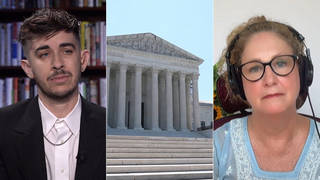
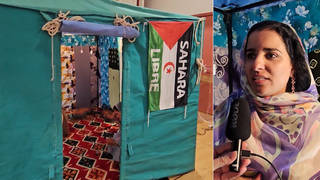
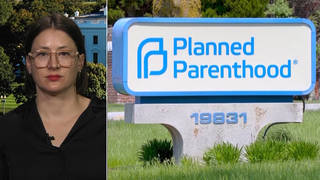





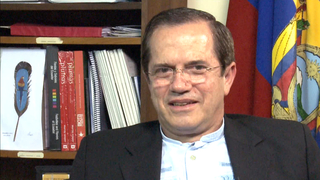

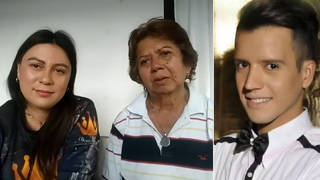
Media Options